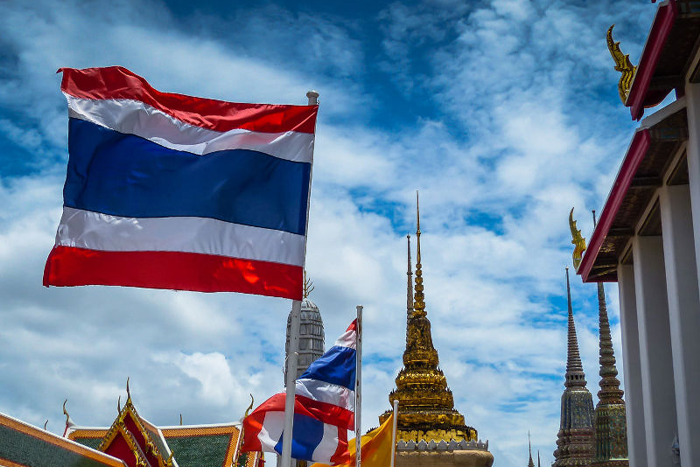Chairman’s Note
Private and Confidential
For SIIA Corporate Members and Advisors
August 2022
Russia and Europe
A number of you have expressed interest and concern about the global situation, including the war in Ukraine. There are many dimensions to the problems and, directly concerning the war, is how Russia will act. I recently met with Thomas Gomart, an expert on Russia and the Director of the leading think tank in France, IFRI. Some weeks ago I was also in Hungary at the invitation of their Central Bank Governor. While the meeting with Gomart was closed-door, please allow me to share some of the insights that I drew and to which I have added some of my own comments.
- Neither New nor Surprising: Russian actions are not unprecedented given the 2014 invasion of the Crimea and parts of the Donbas, and in Georgia. Public rhetoric by Putin and Russians close to him reflect their broad push back to the European Union, which they regard as an “ideological Reich” under German hegemony. I believe this explains why Putin talks about an effort to “de-Nazify” Ukraine. Similar ideas have been voiced by Poland’s far right government as well as a broader EU-skepticism in Hungary.
- Russian Ambitions: The initial scale and ambition of the Russian action did surprise. Most originally expected the Russian “special operation” to be in the Donbas and near the border only. Putin saw this as a “colonial war” given his view of history (the first Russian state called Kievan Rus, some 12 centuries ago, was established in Kiev). Moreover, he calculated that the war would be conducted under a nuclear umbrella that would constrain resistance. His recurring references to the Russian nuclear arsenal are to remind the West of limits to their opposition.
- Relations with China: Europeans give serious attention to the February Sino-Russian declaration of “friendship without limits”. But it is clear the two are becoming more differentiated in their global positioning. Even before sanctions, Russia was increasingly isolated from Western economies – except for the energy supply. In contrast, China is a key investor and market. Consequent to sanctions, Europeans are moving towards energy independence and Russia will be ever more reliant on Chinese markets. China is clearly the dominant partner and, with the sanctions and cost of war, Russia’s economy must be expected to be further hit, increasing the disparity between the two “friends”.
- “The Collective West”: Up to now, Russian actions have brought Europe closer than ever to each other and to the USA, enlarging NATO’s relevance. But will the West remain united to this extent? The EU has lost its “peace dividend” with a continuing conflict, refugees and fractured supply chains. It faces a difficult winter with higher inflation and energy prices and possible scarcities, as well as a recession. In contrast, the USA has strengths, especially its USD, as well as leads in technology and military strengths. Differences may well grow within Europe and between EU and the USA. I would add that French President Macron had earlier voiced the hope of a independent policy and may try this again, circumstances allowing.
- Geography: While physically within Europe, the war in Ukraine is rippling widely. There are strategic adjustments notable in India, Turkey, Saudi Arabia and some Gulf states. These are finding their own interests and space, without joining the West.
- Nuclear Capabilities: Russian warnings about nuclear are not empty threats. Their funding has continued and they have been isolated from the broader military. Gomart believes that the Russian capabilities in nuclear weaponry remain strong and capable of use.
- Russia Beyond Putin? The longer and widening conflict will be unpopular in Russia. Conscription is unpopular and leading many young men to leave the country. They and their families know the Russian military often treat manpower as being expendable. But power is focused on Putin within a “mafia” system with different power “chieftains. It is not impossible that one may seek to dethrone Putin if the war does not go well. However, the successor is unlikely to be a reformer, and may be even worse than Putin.
Nothing in the above note was taken from confidential or classified documents. While the discussion with Gomart and my interactions with some European officials have fed into this note, the points are not attributable to any individual. I would be grateful if you would keep the above note as being views shared with you as our member and friend, and not for wider circulation.
Yours Sincerely
Simon Tay
Chairman
Download the PDF version here.
This note is produced by the Singapore Institute of International Affairs (SIIA), a non-profit, independent think tank that takes no institutional position on policy issues. All views and conclusions expressed in this publication should be understood to be solely those of the author(s).
![[Premium] Chairman’s Note: Russia & Europe](https://siiaonline.org/wp-content/uploads/2022/12/2020-12-08T191655Z_1682490904_RC27JK9UNWXQ_RTRMADP_3_RUSSIA-CITYSCAPE-scaled-e1634651141667.jpg)



